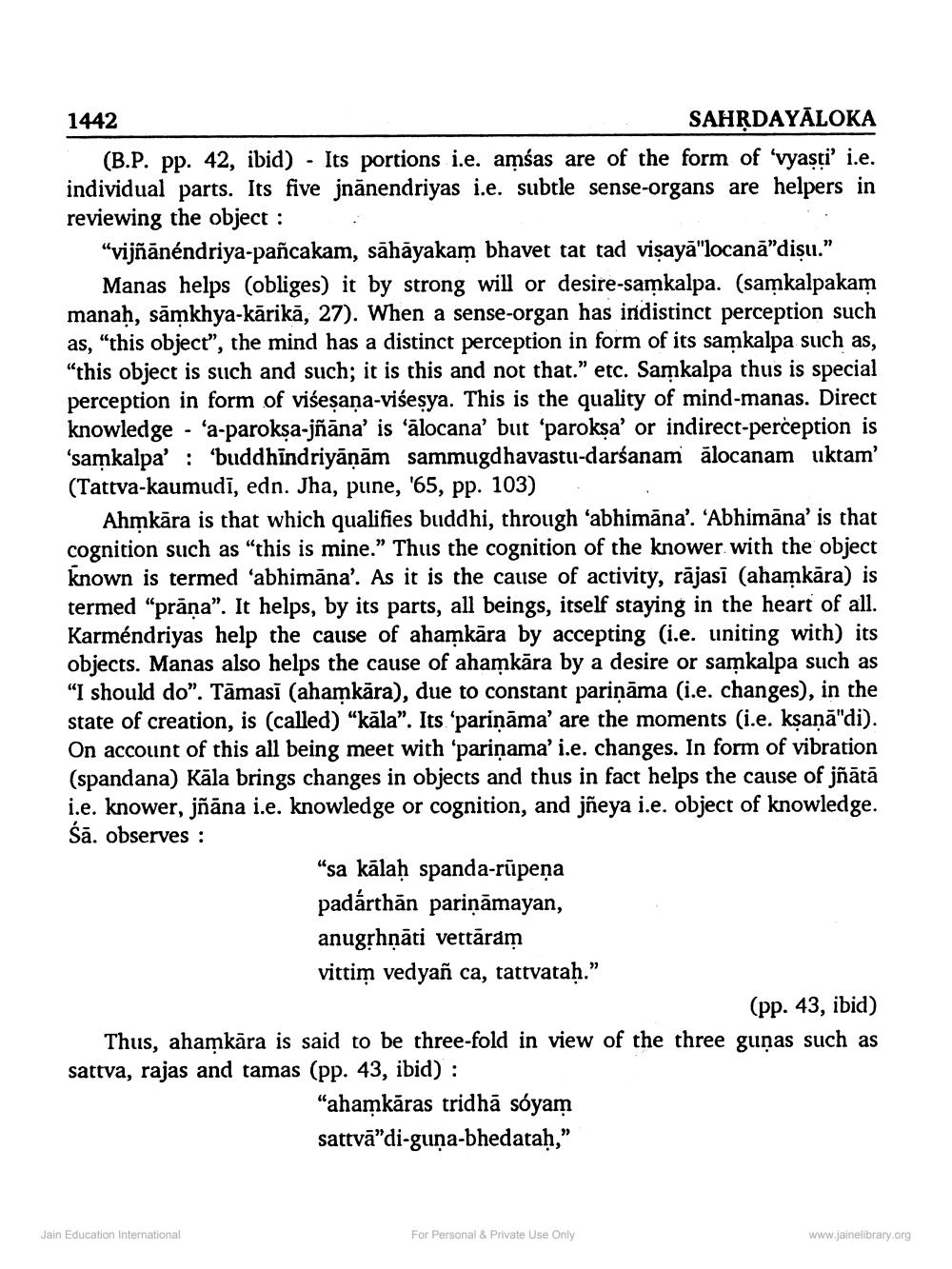________________
1442
SAHṚDAYALOKA
(B.P. pp. 42, ibid) - Its portions i.e. amsas are of the form of 'vyasti' i.e. individual parts. Its five jnanendriyas i.e. subtle sense-organs are helpers in reviewing the object :
"vijñānéndriya-pañcakam, sāhāyakam bhavet tat tad viṣaya"locanā"diṣu."
Manas helps (obliges) it by strong will or desire-samkalpa. (samkalpakam manaḥ, sāmkhya-kārikā, 27). When a sense-organ has indistinct perception such as, "this object", the mind has a distinct perception in form of its samkalpa such as, "this object is such and such; it is this and not that." etc. Samkalpa thus is special perception in form of viseṣaṇa-viśeşya. This is the quality of mind-manas. Direct knowledge 'a-parokṣa-jñāna' is 'alocana' but 'paroksa' or indirect-perception is 'samkalpa': 'buddhindriyāṇām sammugdhavastu-darśanam alocanam uktam' (Tattva-kaumudī, edn. Jha, pune, '65, pp. 103)
-
Ahmkara is that which qualifies buddhi, through 'abhimana'. 'Abhimana' is that cognition such as "this is mine." Thus the cognition of the knower with the object known is termed 'abhimana'. As it is the cause of activity, rājasī (ahamkāra) is termed "prāṇa". It helps, by its parts, all beings, itself staying in the heart of all. Karméndriyas help the cause of ahamkara by accepting (i.e. uniting with) its objects. Manas also helps the cause of ahamkara by a desire or samkalpa such as "I should do". Tamasi (ahamkāra), due to constant pariņāma (i.e. changes), in the state of creation, is (called) "kāla". Its 'pariņāma' are the moments (i.e. kṣaṇā"di). On account of this all being meet with 'parinama' i.e. changes. In form of vibration (spandana) Kāla brings changes in objects and thus in fact helps the cause of jñātā i.e. knower, jñāna i.e. knowledge or cognition, and jñeya i.e. object of knowledge. Śā. observes :
Jain Education International
"sa kālaḥ spanda-rūpeṇa padárthän pariṇāmayan, anugṛhṇāti vettāram vittim vedyañ ca, tattvataḥ."
(pp. 43, ibid)
Thus, ahamkāra is said to be three-fold in view of the three gunas such as sattva, rajas and tamas (pp. 43, ibid):
"ahamkāras tridhā sóyam sattva"di-guna-bhedataḥ,"
For Personal & Private Use Only
www.jainelibrary.org




